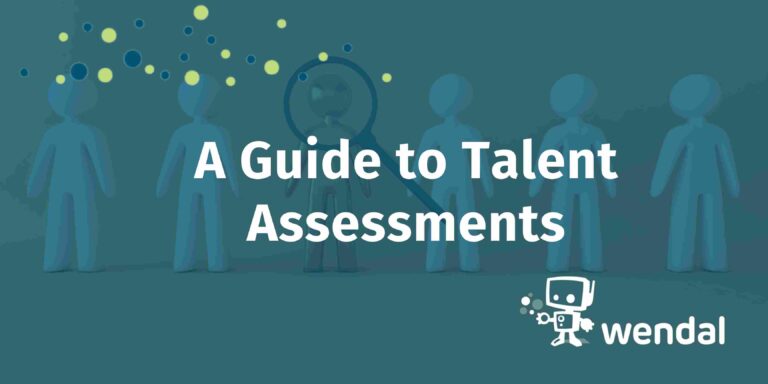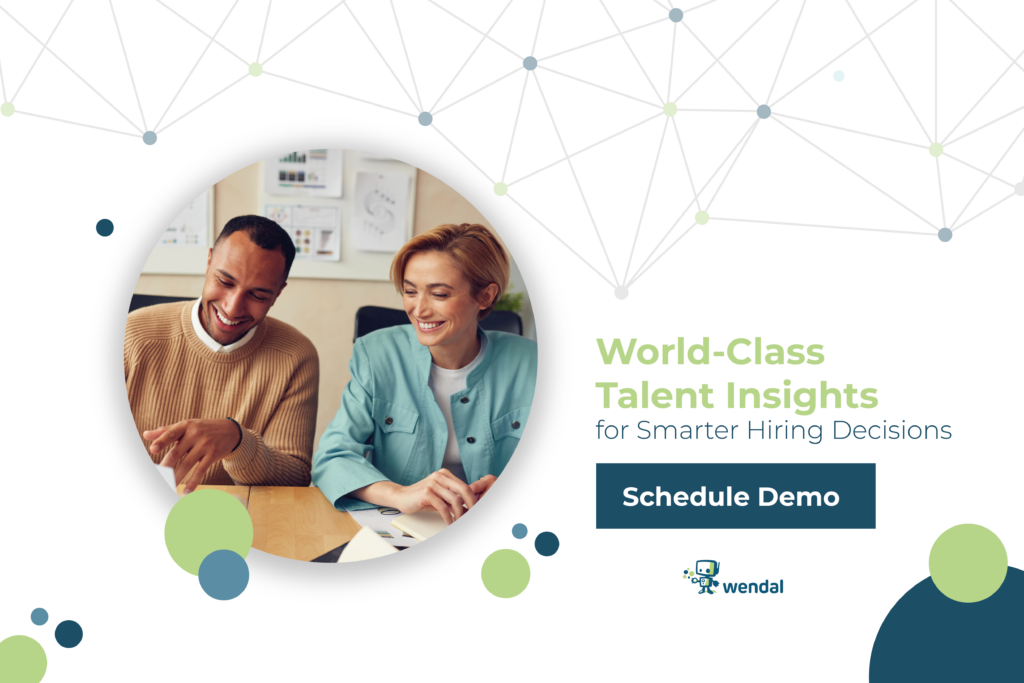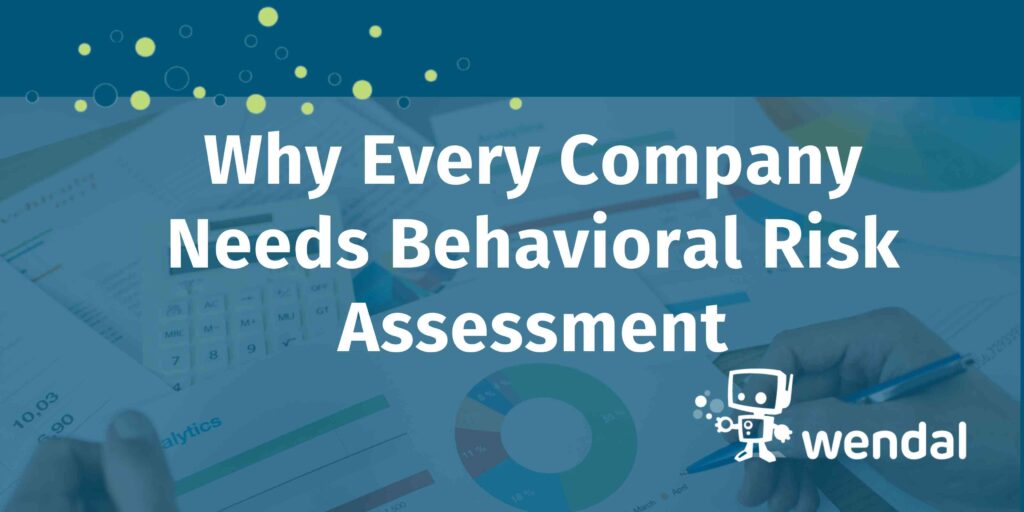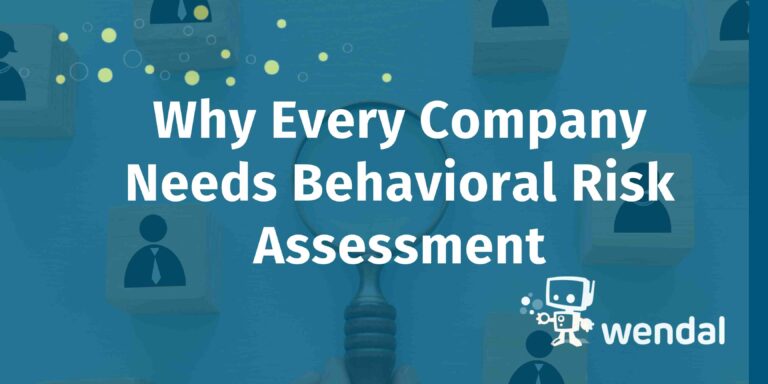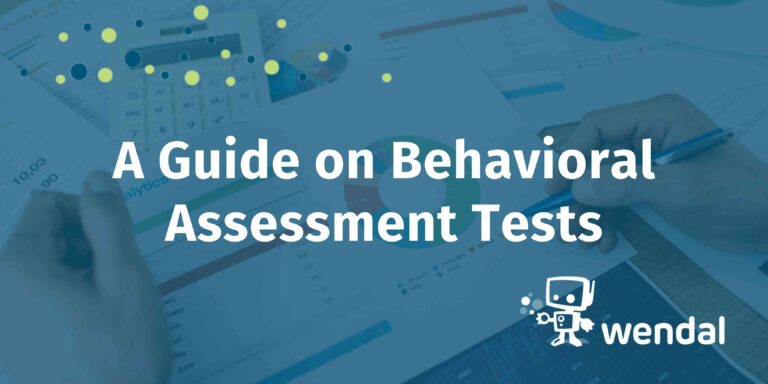Talent Assessments: Framework, Examples, and Benefits
Organizations need the right talent to succeed in today’s competitive landscape and for this purpose, talent assessments have become an indispensable tool for making informed hiring and development decisions.
This guide provides a thorough overview of how to design a robust framework for assessing different types of talents such as analytical skills, creative thinking abilities, or interpersonal competencies – along with examples from companies that have successfully implemented their own version of these tests.
Let us uncover how organizations can unlock potential through the effective use of talent assessment systems!
Key Takeaways
- Talent assessments give employers insights into candidates and employees, helping them make informed decisions in recruitment and employee development processes.
- Four key types of talent assessment tools are cognitive ability tests, personality tests, situational judgment tests, and skills/job simulations.
- Organizations can benefit from integrating talent assessments to improve productivity & reduce costs while ensuring legal compliance & reducing bias.
Understanding Talent Assessments
Talent assessments are critical in the current business climate, as they assess an individual’s qualifications, ability and aptitude to undertake a job. By incorporating such tests into their hiring practices, companies can get valuable insights concerning potential employees or existing staff. This aids them when making judgments regarding recruitment and employee advancement decisions. Implementing a talent assessment program is essential for organizations trying to perfect their personnel management systems by ensuring each position has the right person for it – creating efficiencies within the whole recruitment process and discovering untapped skills amongst already employed individuals that could be used to Corporate progress.
The Role of Talent Assessments in Recruitment
Making wise hiring decisions in the recruitment process is easier by employing talent assessment tests that measure a candidate’s skills, cognitive abilities, and personality traits. Advantages include being able to create job descriptions based on skill requirements as well as reducing training time and costs for greater overall team performance. Using such tools also increases the chances of bringing into an organization employees who will align with its culture while bridging any gaps between what they can bring to the table and their role’s needs. Cognitive ability tests, Personality Tests, Situational Judgment Tests or Skills Tests are all examples that contribute significantly towards this endeavor.
The Role of Talent Assessments in Employee Development
Talent assessments are crucial beyond the recruitment process, providing significant information about an employee’s abilities and growth potential to serve as an informative resource for training and development purposes. Companies that successfully employ talent assessments have seen a rise in high-performing staff members and improved retention rates.
This also offers existing employees more specific opportunities by analyzing their skillset so employers can better recognize the ideal person suited for particular positions, thus increasing chances of success within organizations. Talent assessment is essential not just at hiring but throughout developmental cycles to ensure employees reach their peak performance levels sooner rather than later!
Key Types of Talent Assessments
Recognizing the importance of talent assessments, it’s time to delve into their fundamental forms:
- cognitive ability tests
- personality exams
- situational judgment evaluations
- skills/job simulations
Each exam provides an individual approach in gauging aspects of a candidate’s capabilities that enable companies to make wise decisions about hiring and employee development.
Combining these approaches allows organizations to access comprehensive insights from potential workers – information needed for the correct determination of how employees may be able to fit into various roles within business operations and expand performance levels for established staff members.
Cognitive Ability Tests
Cognitive ability testing provides employers with the necessary knowledge to judge someone’s aptitude for problem-solving, reasoning, and perception. It helps them determine if an individual has what it takes to perform their job role well. These tests give insight into a candidate’s capacity in meeting work objectives effectively and adapt flexibly when faced with new challenges at the workplace.
Bear in mind that cognitive abilities only take into account quantitative features of talent. They cannot measure other qualities such as attitude or communication skills precisely enough. It is essential to pair this type of assessment with other types of analysis so that we can receive a comprehensive understanding of a potential employee’s capabilities.
Personality Tests
Personality tests assess traits, values, and working styles that will allow organizations to determine how well a candidate would fit in their culture. This type of testing usually includes measures such as extraversion, agreeableness, conscientiousness, openness, emotional stability, and many more. By analyzing communication skills or leadership capabilities, employers can identify the potential within each applicant they interview- without this evaluation, it’s impossible to know if one could excel at the desired job position.
The real benefit behind deploying personality tests is providing an opinionated view on behavior. These alone cannot accurately evaluate the skill set for carrying out duties connected with particular roles nor the knowledge needed for completing them. To get an accurate summary of any possible employee’s capability, you need to combine methods other than just these types of assessments in order to be fully confident when making hiring decisions.
Situational Judgment Tests
Situational Judgment Tests (SJTs) are a valuable tool in assessing an individual’s capacity for making decisions, resolving issues, and using their interpersonal skills within the context of work. Candidates are confronted with simulated workplace scenarios, from which they must select the best solution among given choices.
The purpose of SJT is to gain insights into how applicants think as well as act when faced with similar situations that might arise on the job. These tests should not be used exclusively but rather together with other methods so that one gets a comprehensive overview about candidate potentialities.
Skills Tests and Job Simulations
Skills Tests and Job Simulations are used to identify the aptitude of potential employees by assessing their capacity for performing specific roles. Through Work Sample Assessments, employers can determine if a candidate is equipped with the necessary job-related skills. Through simulations such as online conversations or product sales presentations, businesses may be better able to evaluate individuals’ capabilities.
This talent assessment process serves an important purpose in evaluating and recruiting appropriate candidates that could contribute significantly towards achieving organizational objectives – making Skills tests and Job simulations integral components of any efficient assessment procedure.
Designing a Talent Assessment Framework
Once familiarized with the range of talent assessments, organizations should learn how to design an effective and efficient assessment framework. This will help provide a structured method for evaluating prospective candidates or existing employees through competency identification and selection of fitting assessment tools.
In this context, two components are worth noting: First is understanding important abilities needed to carry out a successful evaluation process. Second, is choosing suitable tests that best reflect these capabilities. Following those steps will ensure creating a well-structured talent appraisal system that can give insightful results.
Identifying Key Competencies
Organizations that want to succeed must identify the key competencies needed for both specific roles and across the entire organization. To do this, an in-depth job requirements analysis is crucial for pinpointing required abilities and skills as well as making sure any assessments utilized during recruitment are not discriminatory but instead align with those requirements. Popular competency examples include problem-solving, communication, teamwork, leadership, commercial awareness and decision-making all of which need to be considered when designing a talent assessment framework by scrutinizing each role’s particular needs. This way, organizations can make sure their selection process is tailored accurately towards what’s necessary for its success by adapting it into the evaluation system used throughout the whole recruitment phase.
Selecting Appropriate Assessment Tools
Once the key competencies are identified, selecting suitable assessment tools to measure them is a necessary step. It’s vital that such tools should be able to meet organizational requirements as well as align with those established competencies for an impartial and evenhanded assessment process to ensue. To ensure the validity and dependability of assessments, organizations ought to seek out providers who specialize on this type of testing so they can assemble a comprehensive talent appraisal framework that aids in making informed choices when it comes to either recruiting or employee development activities.
Implementing Talent Assessments in Your Organization
As we have explored the components necessary for a successful talent assessment framework, it is now time to look into how these assessments can be put into practice in your organization. Implementing this kind of evaluation system during hiring and ongoing staff development has several benefits, such as greater productivity, cost-saving options, improved retention rates with top-performing workers and leading towards more effective team building along with predicting job-related performance results. Let us discuss some tips on integrating these assessments within recruitment processes, plus using them regularly for employee advancement in the future.
Integrating Assessments into the Hiring Process
For an optimal recruitment strategy, it is essential to incorporate talent assessments into the hiring procedure. By doing so, organizations can pinpoint which candidates best match the job role and effectively reduce any potential bias in decision-making. Challenges such as ensuring legal compliance, minimizing bias in tests used for assessment, and verifying that these evaluations are accurate must all be addressed appropriately, too. With effective integration of relevant talent assessments within their process, companies will benefit from a successful selection approach that fits today’s needs perfectly.
Using Assessments for Ongoing Employee Development
The utilization of talent assessments is not limited to the recruitment phase. They can be employed for continuing employee growth. Through providing feedback on personnel performance, locating regions that need improvement, and helping build personal advancement plans, these evaluations help employers cultivate their staff and maintain a strong workforce.
Organizations with efficient use of them have seen more significant levels in well-performing workers and increased preservation rates. Using these reviews to identify development needs, direct training courses and support occupation progression among current employees helps businesses nurture their staff successfully while ensuring continued success.
Real-World Examples of Talent Assessment Success
To emphasize the significance of talent assessments in organizations, let’s explore a few triumphant cases where they have had successful outcomes. For instance, General Motors, Hilton Worldwide, and IBM are all companies that experienced advantages from using assessment tools during their hiring processes or for staff development activities. Another example would be how the US Navy utilized these techniques to narrow down suitable candidates for specific roles. Subway applied them as part of leadership growth initiatives, demonstrating that assessments can be imperative in organizational progressivity. These examples aim at inspiring businesses on what impact this resource may bring about within recruitment and developmental proceedings if included in one’s corporate strategies appropriately.
Overcoming Common Challenges in Talent Assessment
Organizations utilizing talent assessments have the opportunity to gain several advantages, yet there are potential risks regarding bias and legal compliance. To guarantee a balanced and effective evaluation process, we will examine various approaches for managing these issues here. Keeping in mind keywords such as ‘talent assessments’ and ‘assessment process’ throughout this exploration of strategies is paramount to creating an equitable system that functions appropriately within set regulations.
Reducing Bias in Assessments
In talent assessments, one of the biggest challenges lies in mitigating bias. Through objective assessment practices and diverse recruitment techniques, organizations can diminish partiality throughout the evaluation process while still supporting equality.
The emphasis on skills within these evaluations grants all applicants a similar chance to succeed, which minimizes predispositions associated with other variables such as race or gender. Fostering diversity while also increasing the quality of hires.
It is equally vital that assessors are appropriately trained so policies around hiring remain equitable and impartial for everyone involved. Steps taken by companies would help ensure fairness towards accurate appraisals free from discrimination-related issues involving candidates or employees being assessed through Talent Assessments.
Ensuring Legal Compliance
Ensuring that talent assessments comply with legal regulations is an essential component of the recruitment process. Keeping current on local laws and implementing a comprehensive policy for recruiting can ensure equitable treatment for applicants while prioritizing diversity in assessment processes helps organizations avoid potential discrimination allegations.
Adhering to lawful guidelines and ethical principles guarantees that all talent evaluations are fair and beneficial to both parties involved. As such, following best practices in terms of compliance gives businesses confidence when creating their unique evaluation procedures so as not to jeopardize success or legality down the line.
Summary
Talent assessments are essential to the success of businesses in this day and age, enabling them to make sound decisions when recruiting personnel or providing opportunities for Development.
Organizations must create a comprehensive talent assessment framework that encompasses multiple types of evaluations to eliminate potential bias issues while still adhering to legal guidelines.
Only then will they be able to unlock the full potential of their teams. As technology changes at an ever-increasing pace, companies must ensure that their processes provide not just suitable candidates but also ample resources with which those individuals can grow effectively over time.
FAQs
Q: How do I prepare for a talent assessment?
A: Be prepared for the talent assessment process by understanding what is expected of you and being honest.
To better prepare yourself, it’s helpful to practice taking an exam, look over potential questions with their answers so as not to be caught off guard during the actual examination. Don’t forget that elimination can help reduce stressful decision-making processes too!
Q: What are the three components for conducting a talent assessment?
A: To conduct a talent assessment, one must define the necessary competencies and attributes, utilize an appropriate method of evaluation, and analyze any results obtained.
All three components are essential in assessing potential talents effectively.
Q: What is the talent assessment of employees?
A: Companies use various tactics and methods to measure the abilities, understanding, and capability of a job candidate for an open position. Assessing talent helps companies accurately gauge how well someone will carry out their role and stay with the firm long-term by analyzing key elements such as competency levels and predicted job performance.
Q: What are the objectives of talent assessment?
A: Assessing talent allows employers to objectively gauge an applicant’s technical skills, as well as “power skills” such as the ability to collaborate and adaptability. In turn providing confidence in identifying quality candidates.
Q: What are the key types of talent assessments?
A: Talent assessments come in a variety of forms, which together can provide an overview of the aptitude and potential that someone possesses. These comprise cognitive ability tests, personality tests, situational judgment exams and skills/job simulations, all important types when it comes to measuring talent capabilities.

